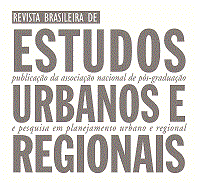Abstract
This article aims to present an overview of the role of the state in the process of industrial development in the state of Paraná, as well as the introduction of territorial planning for attracting industrial investments. The role of the state in the development of the Greater Curitiba region, as well as the locational theories that justify the attractiveness of the region to industrial activity, both in the 1970s and in the initial process of industrialization in the 1990s, are highlighted. The results show that the efficiency of the State in attracting industries in the 1970s did not have the same success in the deconcentration of the activity, demonstrating the fragility of the state's performance in expanding industrialization policies as an instrument to encourage and decentralize regional development. Finally, the study points out that there is a strong industrial centralization and economic concentration in this region of Paraná, which can be explained by the existence of locational factors that contribute to industrial attractiveness in these regions.
Keywords:
Regional Development; Industrial Deconcentration; Industrial Locational Theory; Metropolitan Region of Curitiba
